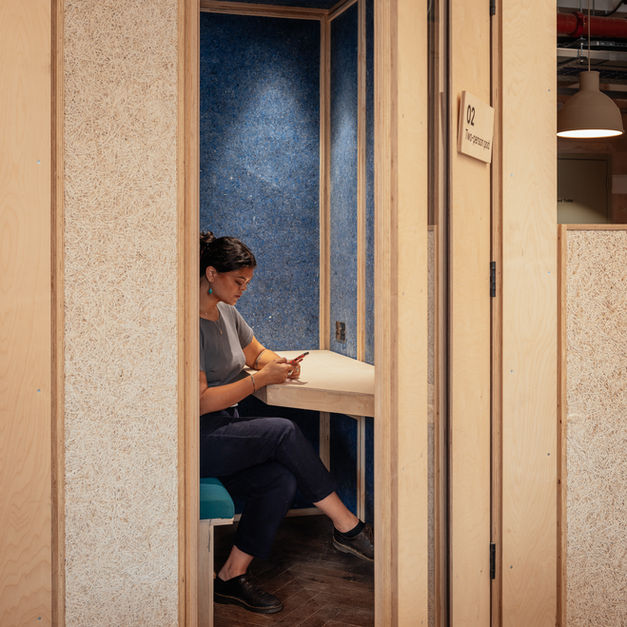Sustainable Workspaces
County Hall / London / UK
Sustainable Workspaces
County Hall / London / UK
The transformation of an historic building into a new home for emerging climate tech businesses. With a low impact design minimising embodied energy, the project is a test ground for innovative materials and techniques that showcase an alternative path to workspace retrofit.
Type
Size
Cost
Client
Photography
Shared Workspace
3,500 sqm
£4m
Sustainable Ventures
Fred Howarth / Stevenson&Co.
New London Architecture Awards 2024 - Best Workplace - Winner
AJ Retrofit Awards 2024 - Highly Commended
RIBA London Award - Shortlisted
Dezeen Awards - Sustainable Interior - Shortlisted
"From the outset of Sustainable Ventures, we knew the workspaces we developed had the potential to have the biggest single impact on the environment whilst also giving an opportunity to demonstrate leadership in the net zero innovation community”
Andrew Wordsworth, Sustainable Ventures Founding Partner

At County Hall, we delivered a sensitive and resourceful retrofit of 35,000 sqft of historic riverside space for Sustainable Ventures—creating a flexible, low-carbon workspace hub for climate-tech startups with minimal intervention and maximum value.
Guided by a light-touch strategy, we worked with the grain of the existing structure—exposing original finishes, retaining embodied carbon, and celebrating the ‘as-found’ condition. This approach significantly reduced environmental impact and cost, while enhancing the character and authenticity of the space.
The project saves 1,150 tonnes co2eq compared to a typical office fit-out. A core principle of the design was circularity. We made extensive use of reclaimed materials—including reused timber flooring, salvaged lighting, and repurposed joinery—reducing embodied carbon and adding unique texture to the interiors. Demountable partition systems and modular fittings enable future reconfiguration or disassembly, ensuring components retain value at end-of-life.
Natural and biodegradable materials—including mycelium acoustic panels and finishes formed form waste and agricultural byproducts—were selected for their low environmental impact and alignment with the ethos of the occupier.
Rather than applying a conventional finish, we focused investment where it mattered: on shared social areas, low energy services, and creating a distinct aesthetic appeal. The result is a distinctive, low-cost, low-carbon workplace that proves how lean, regenerative design can drive meaningful sustainability when design decisions are guided by restraint, resourcefulness, and circular thinking.




















